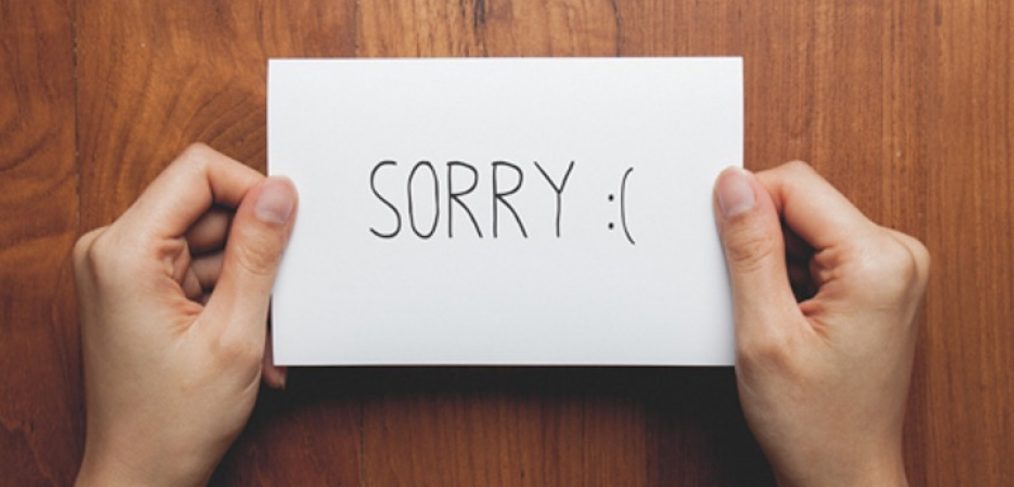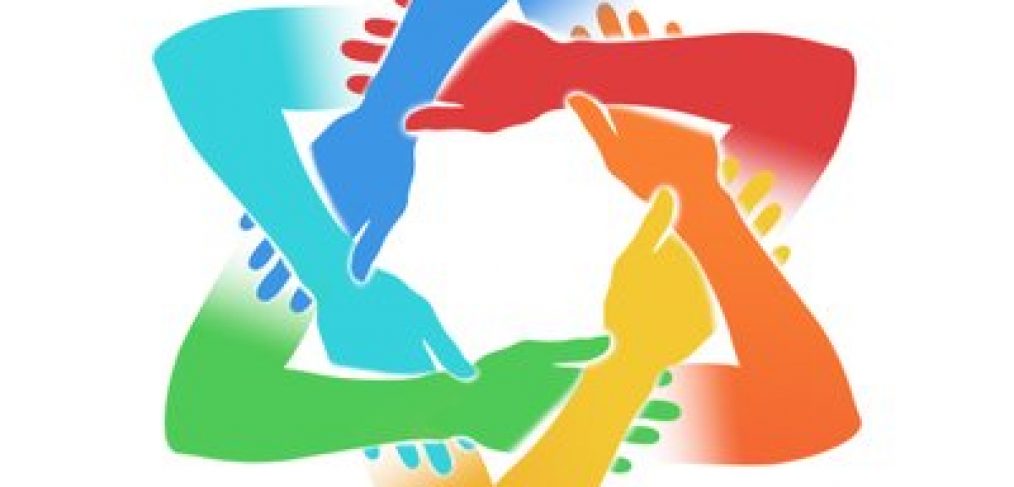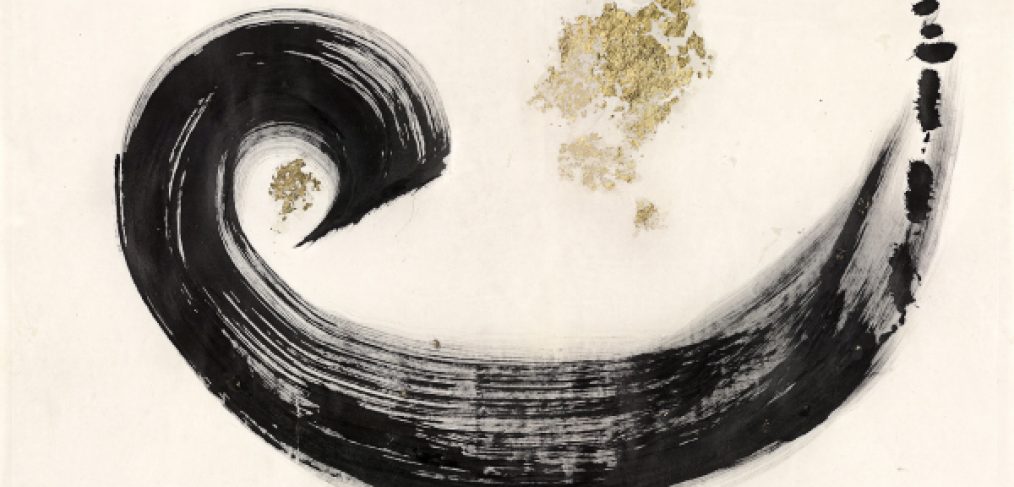Yom Kippur Morning Sermon, 2022/5783
By Rabbi Mark Glickman
Lisa popped her head into my study one day with a friendly hello. She had grown up at Temple, and now, as a newly married adult, she was a Temple member with her husband, and an active volunteer in her many areas of congregational life. We sat down, and chatted about how her life was going, and about some of her current Temple projects, and as our conversation wound down, she said, “And now if I can just get through Rachel’s wedding, everything will be fine.”
Rachel had also grown up at Temple, and I knew she and Lisa had been friends since they were little. Rachel’s wedding was going to take place in just a few weeks.
“If you can just ‘get through’ her wedding?” I asked. “What does that mean?”
Rachel took a deep breath. “Can I share something with you confidentially?” she said.
“We’re in the vault,” I said.
“It’s the toughest thing,” Lisa explained, “and it’s all my fault.” Her eyes suddenly welled up with tears. One night near the end of our last year at university,” she continued, “I had a one-night-stand with Lisa’s boyfriend, Dan – the same Dan she’s about to marry. It was stupid, I know. We were at a party, we’d had a few too many drinks, and I felt horrible about it afterwards. So did Dan.
“Dan and Rachel repaired things somehow,” Lisa continued, “but I’ve never been able to fully fix things with her. I apologized to her over and over again after it happened. I told her that I knew I’d hurt her, and that I never wanted to. I explained that I’d learned my lesson, and that I hoped she could forgive me and we could be friends again. That was years ago, Rabbi, and since then we’ve sort of mended things, but not really. I mean…we travel in the same social circles, and she eventually started speaking to me. She’s been polite since then, but never warm. And she’s never forgiven me.
“Then, when Jim and I got married six months ago, I asked her to stand up in my wedding. I was hoping it might help repair our relationship. In response, I got a text from her saying. ‘Thanks for inviting me to your wedding. I will attend, but I don’t want to be in the wedding party.”
“Needless to say, rabbi, she didn’t ask me to stand up at her wedding, either. And I think the only reason I got invited is that there’s such a huge guest list. I wish there was something I could do to get her to forgive me.”
Forgiveness. It’s a theme we often come back to during these most Awesome of Days. In fact, during the years since I became your rabbi, I have stood at this bimah and delivered many, many hours’ worth of sermons on a variety of topics, and you have dutifully sat through them all. (I admire your devotion…or at least your courtesy.) Among those many sermons, one of them that received the most response – both positive and negative – was about forgiveness. In that sermon I taught that, contrary to what you will hear from many other Jewish teachers, Judaism at root doesn’t really emphasize forgiving others very much, because, especially during these days of awe, what really counts is earning forgiveness for the wrongs that you yourself have committed, rather than forgiving other people for their misdeeds. I went on to suggest that, to the extent that our tradition does call us to forgive other people, we’re supposed to do so only for the repentant wrongdoer, and that if a person who has wronged us hasn’t changed her ways, hasn’t apologized, and hasn’t made things right by you, then you don’t owe her a thing in way of forgiveness.
I stand by those words, and I continue to find myself saddened when I hear of people being pressured to forgive others who have caused them pain, even when the wrongdoers haven’t earned such exoneration.
Today, however, I’d like to look at forgiveness from a different angle – from Lisa’s angle. What are we to do if we, ourselves, have done something wrong…and we can’t get the person we’ve harmed to forgive us.
As I’ve mentioned, when we do wrong, Judaism calls upon us not only to apologize, but to truly earn forgiveness for our misdeeds. And as I’ve also mentioned, that act, teshuvah, is really hard – a five-step process designed to have us take full responsibility for what we’ve done, and to respond accordingly. And what are those five steps? By now you might know them. First, we need to acknowledge to ourselves what we’ve done wrong – own up to our transgressions. Then, even before we apologize, we need to change our behavior – change up. And only then do we ‘fess up – apologize. Fourth step is compensating the people we’ve wronged for the harm we’ve done to them – pay up. Then finally, fifth, we maintain those changes long term – keep it up.
Own up, change up, ‘fess up, pay up, and keep it up. That’s a lot of work.
In Lisa’s case, she clearly feels remorse for what she’s done, so she’s owned up. And if we are to believe her, she learned her lesson and hasn’t recommitted that offense, so she’s also changed up. Third, she apologized to Rachel, so she’s fessed up, too. And to skip to the fifth step, she’s evidently kept up those changes since she made them.
What’s complicated for Lisa is that fourth step – pay up. That step is easy to figure out when we’ve harmed somebody’s property, or caused them monetary damage. If Lisa had dropped and broken a nice vase in Rachel’s house, for example, she would just need to pay Rachel the value of that vase, or maybe replace it for her. But of course, here we’re dealing with a personal betrayal, and with the emotional harm that came with it. Compensation for those kinds of wrongdoings is much harder to calculate. And, of course, Lisa and Rachel might disagree as to what kind of compensation would be fair.
But even though we might disagree with Lisa, for the sake of discussion, let’s give her the benefit of the doubt. She’s extended herself to Rachel, she’s tried to be kind, she’s done whatever she could to mend the relationship and be good to her longtime friend. Let’s assume for the sake of discussion that she’s paid up, too.
That means that Lisa has gone through her five steps. She’s done everything she could, and Rachel is still holding what she did against her. Lisa’s done all she could, and Rachel hasn’t forgiven her. What’s Lisa supposed to do now?
Judaism’s answer to this question is clear. If you’re genuinely remorseful for something you’ve done wrong, and if you’re doing your teshuvah, and if apologize to your victim, and if that person refuses to forgive you…then you’re supposed to ask them for forgiveness again. And if they refuse you a second time, then you ask them a third time. And if they refuse you that third time, then…you’re done. You’ve done everything you could, and Judaism considers your teshuvah complete, even without the forgiveness of the person you’ve wronged.
(The only exception to this process, I should add, is if the person you’ve wronged is your rabbi. Then, you’re supposed to ask them over and over again, as many times as it takes for them to forgive you. I’m just sayin’.)
To help us visualize this, our tradition teaches that we all have a scale somewhere; when we fulfill a commandment, a weight gets added to one side of the scale, and when we transgress a commandment, a weight gets added to the other side. Do what God wants and the scale tips one way, do what God doesn’t want, and it tips the other way. The direction in which that scale tips at the end of our lives will determine the destiny of our souls.
But, when a weight gets added to the sin side, it doesn’t have to stay there. If we do our teshuvah – if we go through the five steps I discussed earlier – we not only remove that deed from the sin side of our scale, we actually do one step better. We remove it from the sin side, and move it over to the mitzvah side. In other words, teshuvah has the awesome power to take a sin, and not only neutralize its harm, but actually to transform it into something good – something in our favor.
And what about forgiveness? Well, when a truly repentant sinner comes to you, as we said, you’re supposed to forgive that person. And if you refuse them that forgiveness – once, twice, three times – then something else amazing happens. Not only does that sin get transformed into a mitzvah on the scale of the person who committed it, but a carbon copy gets made of that sin and gets added to your own scale on the sin side.
In other words, if someone who has wronged you comes to you with their heart in their hands, remorseful, apologizing, and having changed their behavior, you’ve got to forgive that person. And if you repeatedly refuse to do so, then at that point you come to own their sin. Their wrongdoing is cleared, and now you’re accountable for it.
In Lisa’s case – if, for the sake of discussion, we can assume that her teshuvah was genuine – then Rachel should have forgiven her. But Rachel didn’t, so Lisa apologized over and over again. And Rachel still held it against her. In this situation, Lisa’s sin-slate is clear – she’s done everything she could. And now, the burden of change is on Rachel’s shoulders.
Look, we want good, strong, long-lasting relationships in our lives. And sometimes, when we mess up, we want the ability to repair those relationships. Sometimes we can, of course, but repairing relationships is a two-way street – it involves a willingness of both the doer and victim of wrongdoing to fix things. And sometimes, as hard as we try, the people we have wronged, for whatever the reason, are simply unwilling to forgive. In such a situation, Judaism reminds us that it’s not up to us to singlehandedly make everything better again – doing so is sometimes impossible. Instead, it’s up to us to do right by our victims. Sometimes that will result in renewed bonds, and, sadly, sometimes it won’t.
Here’s the point. Having done what she did, it’s not Lisa’s responsibility to persuade Rachel to forgive her. Instead, Lisa’s responsibility is to do her teshuvah whether or not Rachel offers forgiveness. In other words, Lisa’s job in this situation is not to get forgiveness, it is to earn forgiveness…whether or not she actually receives it.
We all mess up – if you haven’t noticed, that’s one of the things our Yom Kippur liturgy reminds us of quite repeatedly. And when we do, our Jewish tradition calls upon us to do teshuvah – to genuinely apologize and genuinely change, and thus to become good people despite and because of our wrongdoings. And when we succeed in doing that – when we succeed in earning forgiveness, then whether or not the people we’ve wronged actually do forgive us becomes beside the point.
At the end of the day, ensuring that others forgive us, then, really doesn’t matter. What matters is to become the kind of person who deserves forgiveness regardless of what they do.
Maybe we could put it in a more religious way. People can sometimes be good judges of others, and sometimes they can be lousy judges. And when we invest our own sense of self-worth in whether people give us their human and very fallible thumbs-up, we subject that sense of worth to human whim, however capricious it might be. What we should do instead, is act in a way that God wants us to act – to make it so that we could earn a thumbs-up from God…if only God had a thumb.
In my office that day, I listened to Lisa’s description of what had happened with Rachel. “Lisa,” I said, “whose fault was it that you betrayed Rachel?”
“Mine,” she said, “and I guess Dan’s, too.” She paused and thought for a moment. “Actually, my own betrayal was my own fault…I can’t blame anyone else for it.”
“Have you done anything like that since then?”
“No….”
“And you apologized?”
“Over and over and over again,” she said.
“And you’ve tried to make it up to her?”
“I think so….”
“It sounds like you’ve done everything that could be expected of you,” I said. “And I just find it sad for both Rachel and you that she won’t forgive you. I don’t know what else you can do.”
I paused. “And for what it’s worth, Lisa, even though Rachel still holds this against you, I have a feeling that God must be pretty happy with the work you’ve done to do right by her.”
I’m not sure that was satisfying for Lisa, but I hope it was. One of the great tragedies of life is that we are incapable of singlehandedly determining what our relationships will be. But one of the great opportunities of life is that we are nevertheless almost always capable of doing what we should. That might not satisfy and estranged friend, but it remains sacred work anyway.
I hope Lisa came to be able to see that, and I hope that each of us can find the strength, even when others don’t appreciate it, to engage in the sacred work of Teshuvah that we are called to perform this day and every day.
Shanah Tovah – may you have a good, sweet year, filled with growth and holiness at every possible moment.





